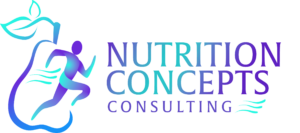The Role of Nutrition in Preventing and Healing Pressure Injuries
Pressure injuries, also known as bedsores or pressure ulcers, are a significant health concern, especially for individuals with limited mobility. Proper nutrition plays a crucial role in both preventing and healing these injuries, ensuring better overall skin health and faster recovery.
Understanding Pressure Injuries
Pressure injuries occur when prolonged pressure on the skin causes damage to the underlying tissue. They are categorized into four stages, ranging from redness and superficial damage to deep wounds affecting muscles and bones. Common causes include immobility, poor nutrition, and underlying health conditions that affect blood flow and skin integrity. Risk factors include age, impaired mobility, and chronic illnesses such as diabetes.
Nutritional Factors in Prevention and Healing
- Protein Intake: Protein is essential for tissue repair and regeneration. Adequate protein intake helps maintain skin integrity and supports the healing process of existing pressure injuries.
- Vitamins and Minerals:
- Vitamin C: Crucial for collagen synthesis and immune function, vitamin C aids in wound healing and skin health.
- Zinc: This mineral supports immune function and protein synthesis, both of which are vital for skin repair.
- Vitamin A: Important for cell growth and differentiation, vitamin A helps maintain skin and mucous membrane integrity.
- Hydration: Proper hydration is essential for maintaining skin elasticity and overall health. Dehydration can lead to dry, fragile skin that is more prone to injury.
Benefits of a Nutrient-Rich Diet
- Enhanced Skin Integrity: A balanced diet rich in essential nutrients supports the structure and function of the skin, making it more resistant to damage.
- Faster Healing Process: Nutrients like protein, vitamins, and minerals are critical for the body’s repair mechanisms, promoting quicker healing of pressure injuries.
- Improved Overall Health: Good nutrition boosts immune function, reduces inflammation, and supports overall health, which in turn aids in the prevention and healing of pressure injuries.
Foods to Include
- Protein-Rich Foods: Lean meats, poultry, fish, eggs, dairy products, legumes, and nuts provide the necessary protein for tissue repair.
- Fruits and Vegetables: These are rich in vitamins, minerals, and antioxidants that support skin health and the healing process.
- Whole Grains and Healthy Fats: Whole grains provide essential nutrients and fiber, while healthy fats from sources like avocados, nuts, and olive oil support cell membrane health and inflammation reduction.
Foods to Limit
- Processed Foods: These often contain high levels of unhealthy fats, sodium, and additives that can impair healing and overall health.
- Sugary Snacks and Beverages: Excessive sugar intake can lead to inflammation and poor wound healing.
- Excessive Alcohol: Alcohol can dehydrate the body and negatively impact nutrient absorption, hindering the healing process.
Proper nutrition is vital for preventing and healing pressure injuries. By focusing on a balanced diet rich in protein, vitamins, minerals, and hydration, individuals can enhance their skin health, support the healing process, and improve their overall well-being. Adopting these dietary changes is a proactive step toward better health and effective pressure injury management.
